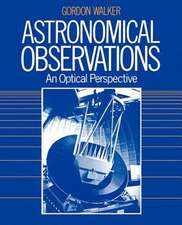Environmental Justice: Concepts, Evidence and Politics
Autor Gordon Walkeren Limba Engleză Paperback – 15 dec 2011
This book focuses on such questions and the complexities involved in answering them. It explores the diversity of ways in which environment and social difference are intertwined and how the justice of their interrelationship matters. It has a distinctive international perspective, tracing how the discourse of environmental justice has moved around the world and across scales to include global concerns, and examining research, activism and policy development in the US, the UK, South Africa and other countries. The widening scope and diversity of what has been positioned within an environmental justice ‘frame’ is also reflected in chapters that focus on waste, air quality, flooding, urban greenspace and climate change. In each case, the basis for evidence of inequalities in impacts, vulnerabilities and responsibilities is examined, asking questions about the knowledge that is produced, the assumptions involved and the concepts of justice that are being deployed in both academic and political contexts.
Environmental Justice offers a wide ranging analysis of this rapidly evolving field, with compelling examples of the processes involved in producing inequalities and the challenges faced in advancing the interests of the disadvantaged. It provides a critical framework for understanding environmental justice in various spatial and political contexts, and will be of interest to those studying Environmental Studies, Geography, Politics and Sociology.
| Toate formatele și edițiile | Preț | Express |
|---|---|---|
| Paperback (1) | 433.39 lei 6-8 săpt. | |
| Taylor & Francis – 15 dec 2011 | 433.39 lei 6-8 săpt. | |
| Hardback (1) | 1116.38 lei 6-8 săpt. | |
| Taylor & Francis – 16 dec 2011 | 1116.38 lei 6-8 săpt. |
Preț: 433.39 lei
Nou
Puncte Express: 650
Preț estimativ în valută:
82.93€ • 86.59$ • 68.48£
82.93€ • 86.59$ • 68.48£
Carte tipărită la comandă
Livrare economică 15-29 aprilie
Preluare comenzi: 021 569.72.76
Specificații
ISBN-13: 9780415589741
ISBN-10: 0415589746
Pagini: 272
Ilustrații: 19 black & white tables, 7 black & white halftones, 24 black & white line drawings
Dimensiuni: 156 x 234 x 18 mm
Greutate: 0.39 kg
Ediția:New.
Editura: Taylor & Francis
Colecția Routledge
Locul publicării:Oxford, United Kingdom
ISBN-10: 0415589746
Pagini: 272
Ilustrații: 19 black & white tables, 7 black & white halftones, 24 black & white line drawings
Dimensiuni: 156 x 234 x 18 mm
Greutate: 0.39 kg
Ediția:New.
Editura: Taylor & Francis
Colecția Routledge
Locul publicării:Oxford, United Kingdom
Public țintă
Postgraduate and UndergraduateCuprins
1. Understanding Environmental Justice 2. Globalising and Framing Environmental Justice 3. Making Claims: Justice, Evidence and Process 4. Locating Waste: Siting and the Politics of Dumping 5. Breathing Unequally: Air Quality and Inequality 6. Flood Vulnerability: Uneven Risk and the Injustice of Disaster 7. Urban Greenspace: Distributing an Environmental Good 8. Climate Justice: Scaling the Politics of the Future 9. Analysing Environmental Justice: Some Conclusions
Recenzii
"At last, the book we have been waiting for. Conceptually acute, empirically informed, and written with verve and refreshing honesty by an acknowledged international expert with years of experience in the field, Gordon Walker has produced the most distinctive contribution to the theory and practice of environmental justice in recent years." Professor Andrew Dobson, School of Politics, International Relations and the Environment, Keele University, UK.
"Moving beyond justice as a question only of distribution and procedure, to the distinct yet related notion of justice as recognition, Walker has produced an excellent, nuanced upper- level text with a rare analytical insight and a critical edge that has, for the first time, truly opened up the possibility of multiple spatial and political understandings of environmental justice." Professor Julian Agyeman, Department of Urban and Environmental Policy and Planning, Tufts University, USA.
"This useful work provides a synthesis, a review of the literature, and a history of the environmental justice movement. Recommended." - S.E. Wiegand, CHOICE, September 2012
"One of the main objectives of the book is the detailed analysis of these cases, in a clear and understandable way. This objective is perfectly accomplished, not only because each of the texts makes a persuasive case for employing the environmental justice perspective, but also because of their use of text boxes that summarize and clarify concepts related to the topic analyzed in each chapter." – Progress in Development Studies, Oscar Alfranca, Polytechnic University of Catalonia, Catalunya, Spain
"Moving beyond justice as a question only of distribution and procedure, to the distinct yet related notion of justice as recognition, Walker has produced an excellent, nuanced upper- level text with a rare analytical insight and a critical edge that has, for the first time, truly opened up the possibility of multiple spatial and political understandings of environmental justice." Professor Julian Agyeman, Department of Urban and Environmental Policy and Planning, Tufts University, USA.
"This useful work provides a synthesis, a review of the literature, and a history of the environmental justice movement. Recommended." - S.E. Wiegand, CHOICE, September 2012
"One of the main objectives of the book is the detailed analysis of these cases, in a clear and understandable way. This objective is perfectly accomplished, not only because each of the texts makes a persuasive case for employing the environmental justice perspective, but also because of their use of text boxes that summarize and clarify concepts related to the topic analyzed in each chapter." – Progress in Development Studies, Oscar Alfranca, Polytechnic University of Catalonia, Catalunya, Spain
Descriere
The book will provide readers with a wide ranging and critical view of the evolving field of environmental justice scholarship and encourages careful thinking and analysis of what is at issue, and provides a framework for understanding the claim making of environmental justice in spatial, temporal and political context.


















